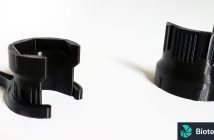
The aquarium trade is under attack again in Hawaii and our industry needs your help. Keep reading below and help the Pet Industry Joint Advisory Council and your beloved hobby.
PLEASE CONTACT THE COMMITTEE MEMBERS IMMEDIATELY!
The Honolulu City Council plans to once again debate and vote on a bill that directly targets the aquarium trade. Animal rights activists have targeted the marine aquarium trade in Hawaii and have found a champion in the Honolulu City Council. The core of Bill 66 (2020) remains the same as the one attempted in on Hawaii County in 2015, with substantial and onerous reporting requirements added for good measure. Since the animal rights community has a long history of never letting facts or reason get in the way of an emotional argument, we need to make our voices heard.
The proposed Bill 66 (2020):
- Defines common and humane best practices as “causing injury” and “inhumane”. Specifically, it forbids the practices of deflating a fish’s swim bladder, trimming spines, or withholding food for over 24 hours. All of these practices are well established and humane methods of protecting the health of fish during transport with substantial scientific study validating their effectiveness. They are specifically designed to take advantage of the lack of expertise regarding the difference between fish and warm-blooded mammals amongst policy makers to engender a misplaced sympathy.
- Conflicts with animal transport regulations and guidance. The International Air Transport Association (IATA)’s Live Animals Regulations (LARs) provides that shippers are to responsibly pack the specimens to survive for 48 hours in transit. In order to meet the IATA 48-hour rule, withholding food is essential to clear the gut of food to minimize the fouling of transport containers. The Convention on International Trade in Endangered Species of Wild Fauna and Flora (CITES) Transport Guidelines states that fish shipments should be packed “in order to minimize pollution of the water, fishes should not be fed for 24 hours prior to shipment.”
- Places unique and onerous reporting requirements on aquarium fishers. Unlike every other fishery, or for that matter any other trade, in the city or county, aquarium collectors would be required to submit exhaustive information on their catch. The information required is clearly far beyond the needs of the city or county. It is also an unfortunate reality that fishers are routinely harassed by activists, and that this information could and would be used by those philosophically opposed to the fishery for targeting purposes.
- The city and county have no capacity to administer or enforce this bill. The “administering, enforcing, and implementing” of this bill is so far outside the current function of the city that the author didn’t even have an office to assign those responsibilities to. Instead, the responsibility to even figure out who should administer this program is punted to “the department designated by the mayor” with no consideration given to the additional expenses that will be incurred by not only the fishers, but the city and county.
Where things stand:
The City and County of Honolulu made no attempt to inform the people or businesses that would be affected by this bill. We were informed by a member of the scientific community in Hawaii that heard about Bill 66 (2020) on Hawaii Public Radio. It passed first reading by the Honolulu City Council on September 10th. The timing and lack of public notification of this bill suggest an attempt to take advantage of the COVID-19 restrictions to avoid the large turnout of fishers and scientists that effectively defeated similar proposals in the past.
What should you do:
- Testify (Urgent!)–present your opinions about this bill to the County Council. This bill is scheduled to be heard by the City Council’s Public Safety & Welfare Committee on September 17. Submit your testimony at http://www.honolulu.gov/ccl-testimony-form.html.
Submit oral testimony remotely through the Webex internet platform. To participate, persons should visit www.webex.com, click “Join,” enter meeting number 1464068540, and complete the registration process. Registrants will receive an email that contains links and information on joining the meeting by either phone or video conference. Webex testifiers are strongly encouraged to register at least 24 hours before the start of the meeting.
Each speaker may not have anyone else read their statement and is limited to a one-minute presentation. Remote testimony will be taken at the start of the agenda and then closed.
- Write the Council Members – Members of the County Council may or may not look at the testimony before the meeting. They will look at the emails that fill their inbox in the days leading up to it. Even if you submit testimony you need to contact the committee members directly to make them aware of your opposition. Go here https://cqrcengage.com/pijac/app/write-a-letter?1&engagementId=509304 to compose a letter and send it to every member of the County Council with just a few clicks.





